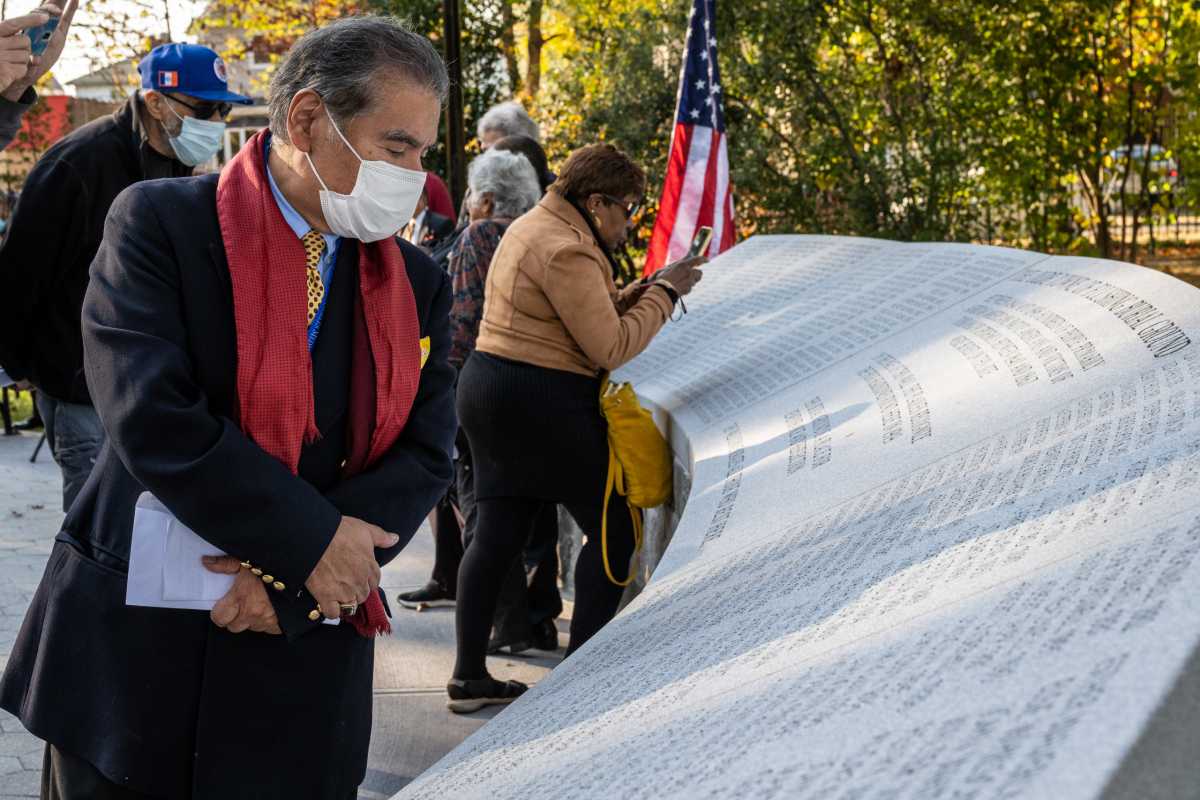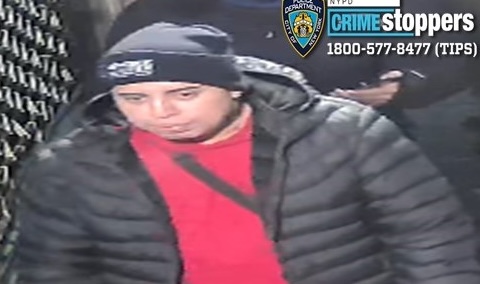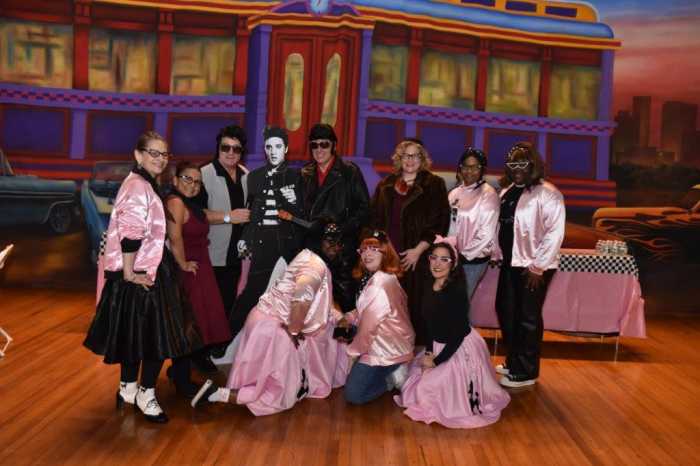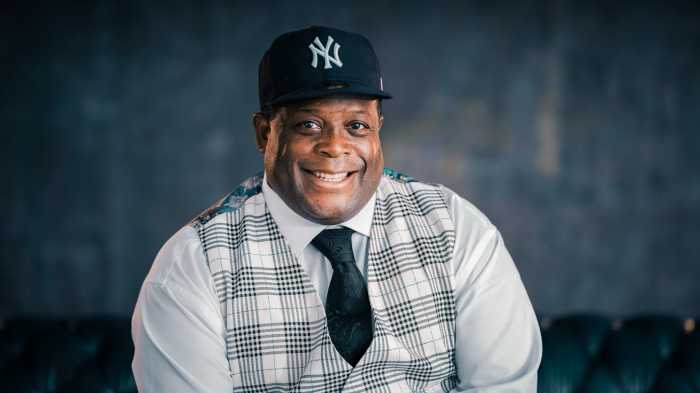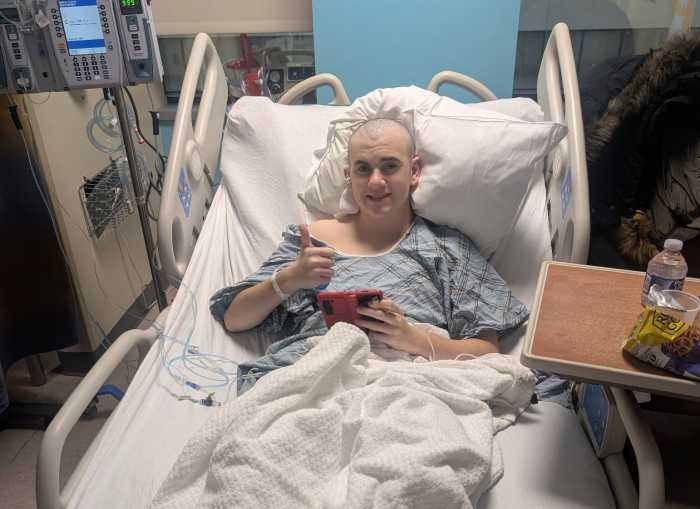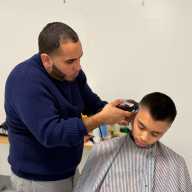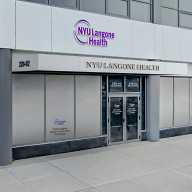Elected officials, members of the Olde Towne of Flushing Burial Ground Conservancy (OTFBGC) and community members gathered for a ribbon-cutting ceremony of the new commemorative plaza at the Olde Towne of Flushing Burial Ground on Tuesday, Nov. 9.
The burial site, located on 46th Avenue between 164th and 165th streets opposite Flushing Cemetery, dates back to 1840, and more than 1,000 people, most of whom were African Americans and Native Americans, are buried there. The cemetery was also the final destination for poor white people and wealthy folks who died during the cholera and smallpox epidemics in the mid-1800s.
The last burial took place in 1898. In 1914, the Parks Department took over the site, renaming it “Martins Field,” in honor of tree conversationist Everett P. Martin.
In 1936, at the behest of then-Parks Commissioner Robert Moses, the last resting place for so many was paved over and turned into a playground with a wading pool and baseball field — no one seemed to care that workers had found evidence that the site had been a burial ground.
OTFBGC board member Sally Mehreteab shared that Bayside-based community activist Mandingo Osceola Tshaka, whose parents told him that family members were buried at the site, brought attention to the site’s history when the Parks Department began renovating the playground in the 1990s. He went to the main office of Flushing Cemetery, where he found records from 1919 indicating that four marble headstones used to stand on the plot tombstones that were destroyed during the construction of the playground.
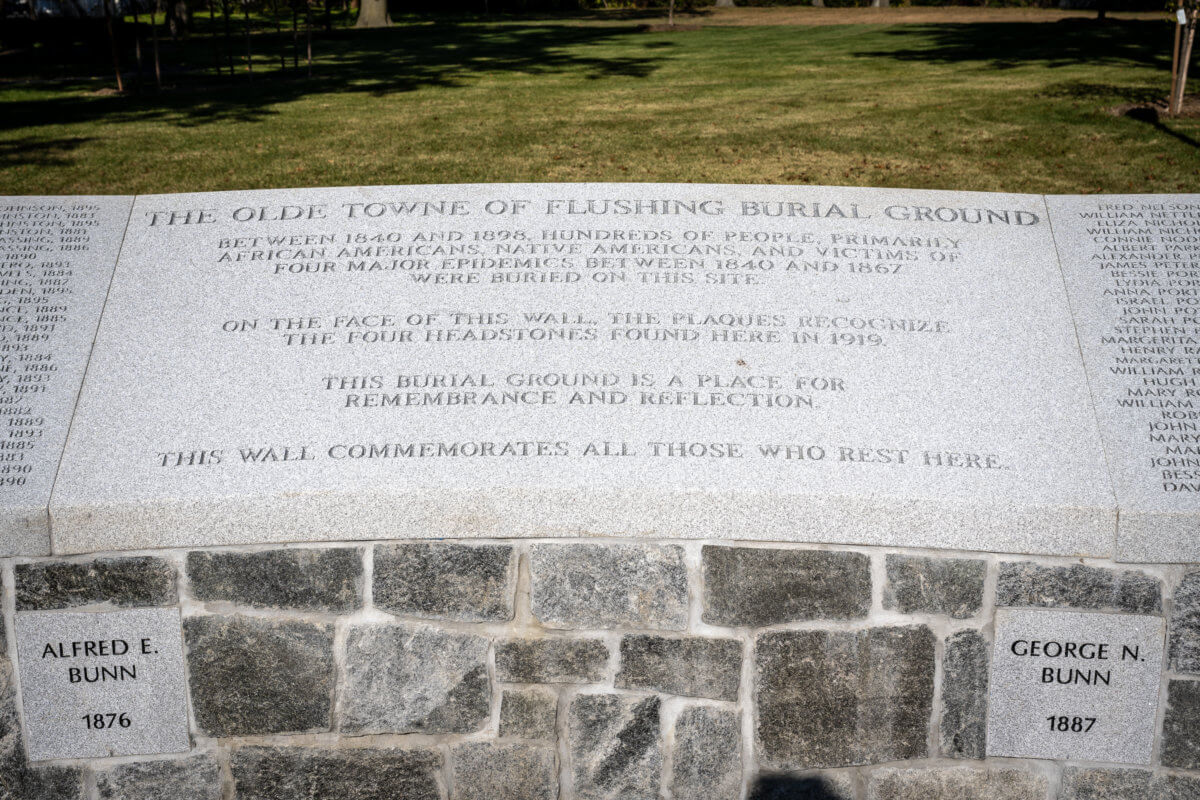
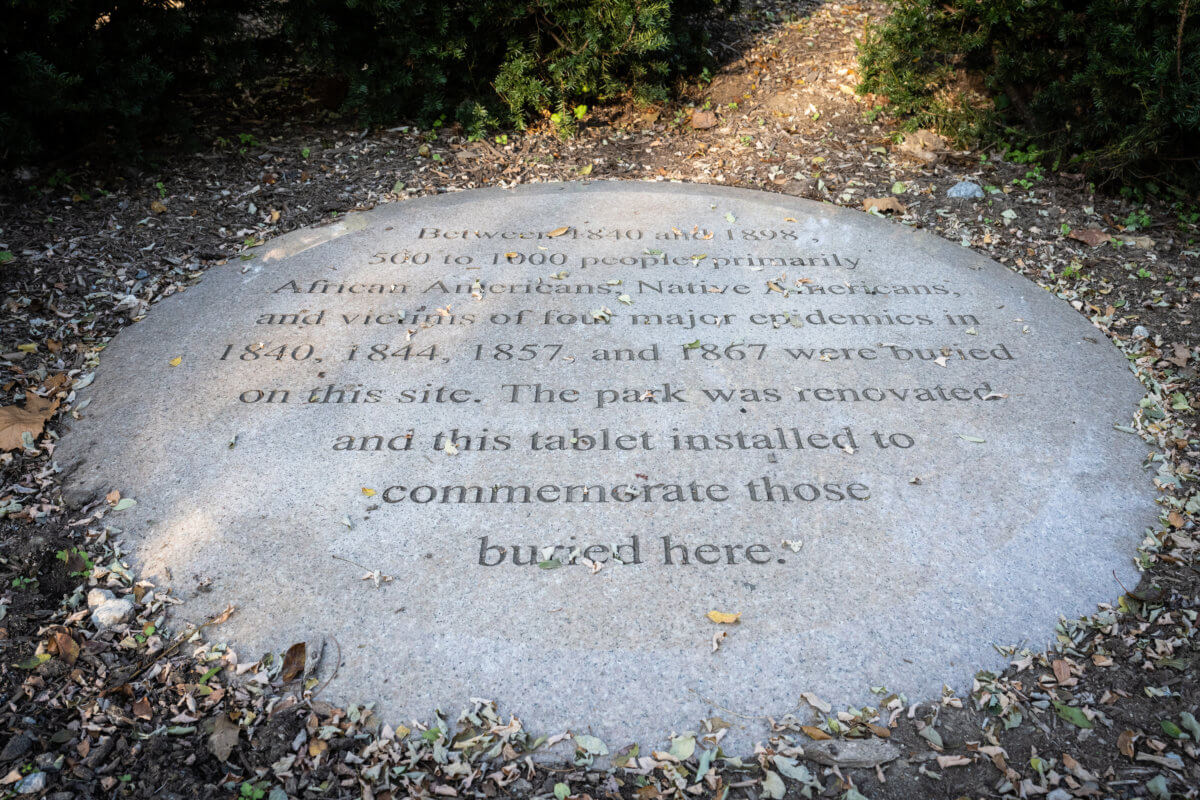
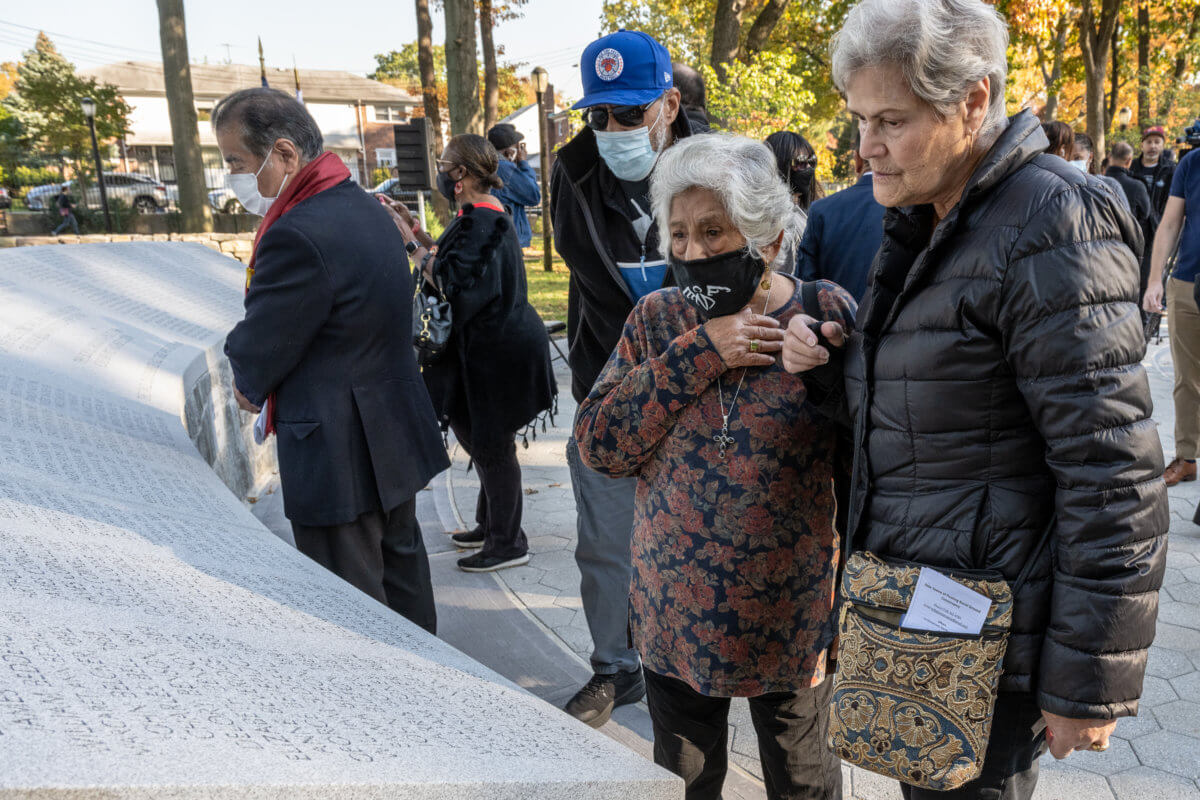
Death records also showed that 62% of the interred were African American or Native American, more than half were children under 5 and 34% were unidentified.
Tshaka urged the city to conduct an archeological survey of the lot in 1996. Archeologist Linda Stone found that the site was the final resting for 500 to 1,000 people. However, it took years of advocacy to have the burial ground recognized and honor the lives of the dead.
In 2009, “Martin’s Field,” which was also once known as the “Pauper Burial Ground” and “The Colored Cemetery of Flushing,” the Parks Department renamed it “The Olde Towne of Flushing Burial Ground.” In October 2018, Mayor Bill de Blasio and then-Queens Borough President Melinda Katz allocated $1.6 million for a new memorial.
Eddie Abrams, an OTFBGC board member, said it was important that his children pass the history on to his grandchildren once he was gone.
“I’m so happy,” Abrams said. “This took a long time, [but] you could really see what can happen if people really work together and put things together and bring back history.”
NYC Parks Commissioner Gabrielle Fialkoff described the ribbon-cutting ceremony for the memorial wall — engraved with 318 recorded names of those buried at the site and inscribed with the names of the four headstones — as “unique.”
“This is a solemn occasion in honor of a sacred space,” Fialkoff said. “In reintroducing at long last The Old Towne of Flushing Burial Ground, we honor the approximately 1,000 people laid to rest in this space.”
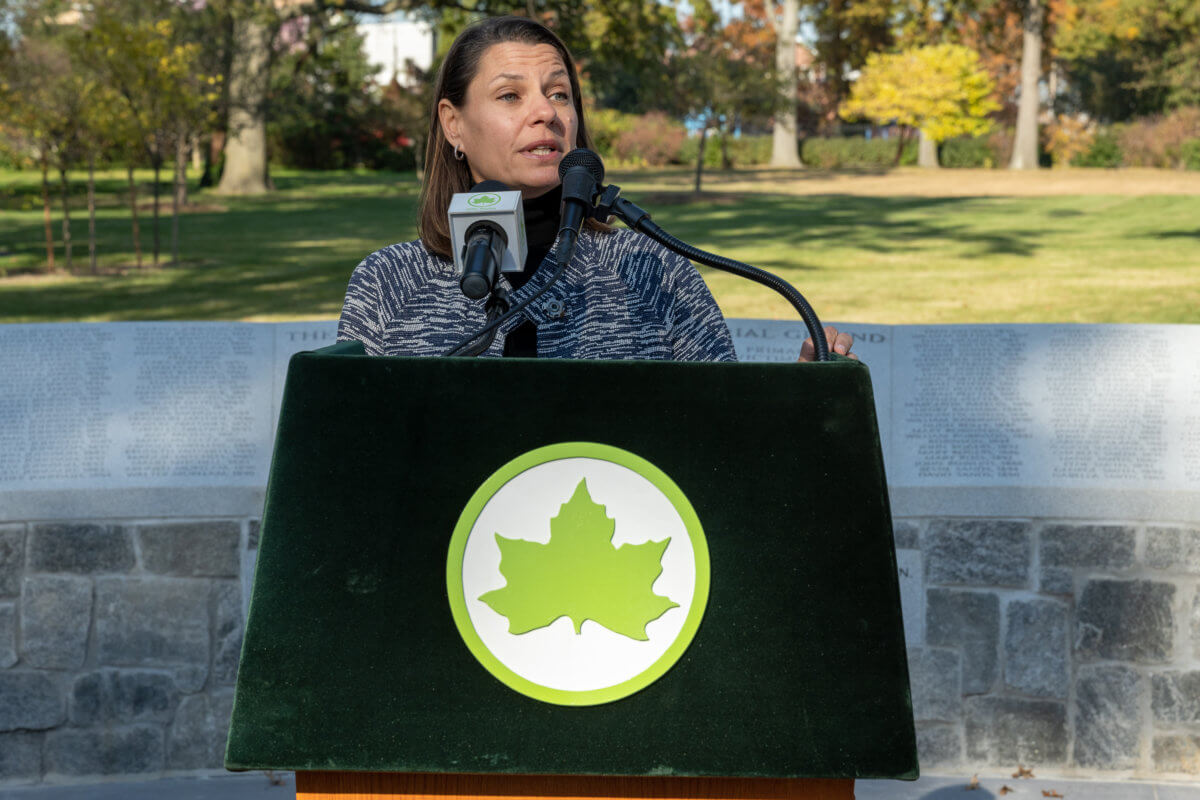
She said the memorial will now be a place to pay respect to “those who came before us.”
“It is also a space to reflect on their stories, their struggles, and their triumphs,” said Fialkoff, adding that she hopes the memorial will give New Yorkers a way to rediscover the sacred and historical place.
Queens Borough President Donovan Richards said that the unveiling of the plaza was a significant milestone in a decades-long effort to right a terrible wrong.
“For far too long, the 314 individuals whose names are engraved on this new memorial have not gotten the recognition nor the respect that they deserve,” Richards said. “The hundreds of other unidentified people buried here who are not individually recognized on the memorial because their names were lost over time have been similarly disrespected.”
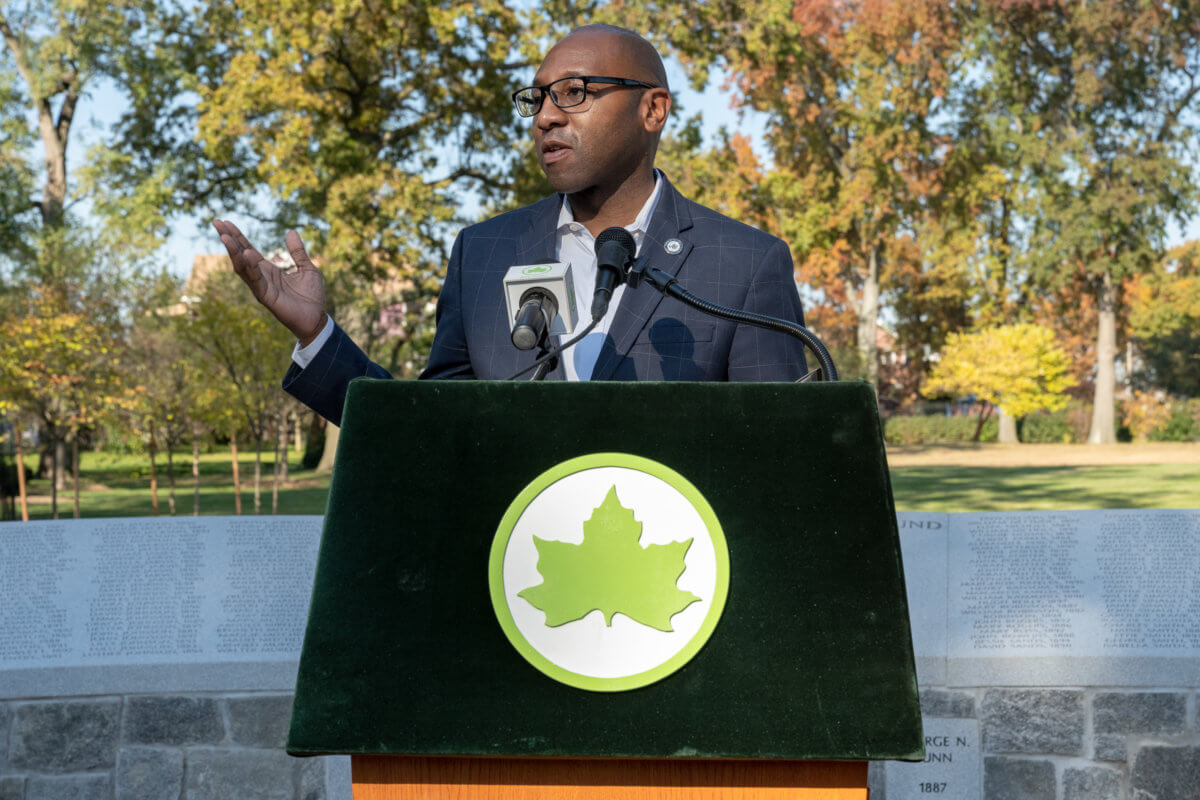
He pointed out that those buried at the site played a vital part in building the community and laid the foundation for a diverse and prosperous Queens.
“Their final resting place should be a place of dignity and respect where their legacy can be properly honored and remembered,” Richards said. “This land is our land.”
Congresswoman Grace Meng said that she wasn’t only attending as a local lawmaker, but also as a mom.
“It’s important for our children and generations of children to come to truly learn a more accurate and complete teaching of American history here in New York and around the country,” Meng said.
State Senator John Liu pointed out that even though New York City was “the greatest city on the planet,” it also had its shortcomings and has made grave mistakes.
“This terrible mistake that this site was once a part of is still a legacy of a time in this city’s history when entire communities [and] people were completely disregarded and disrespected,” Liu said.
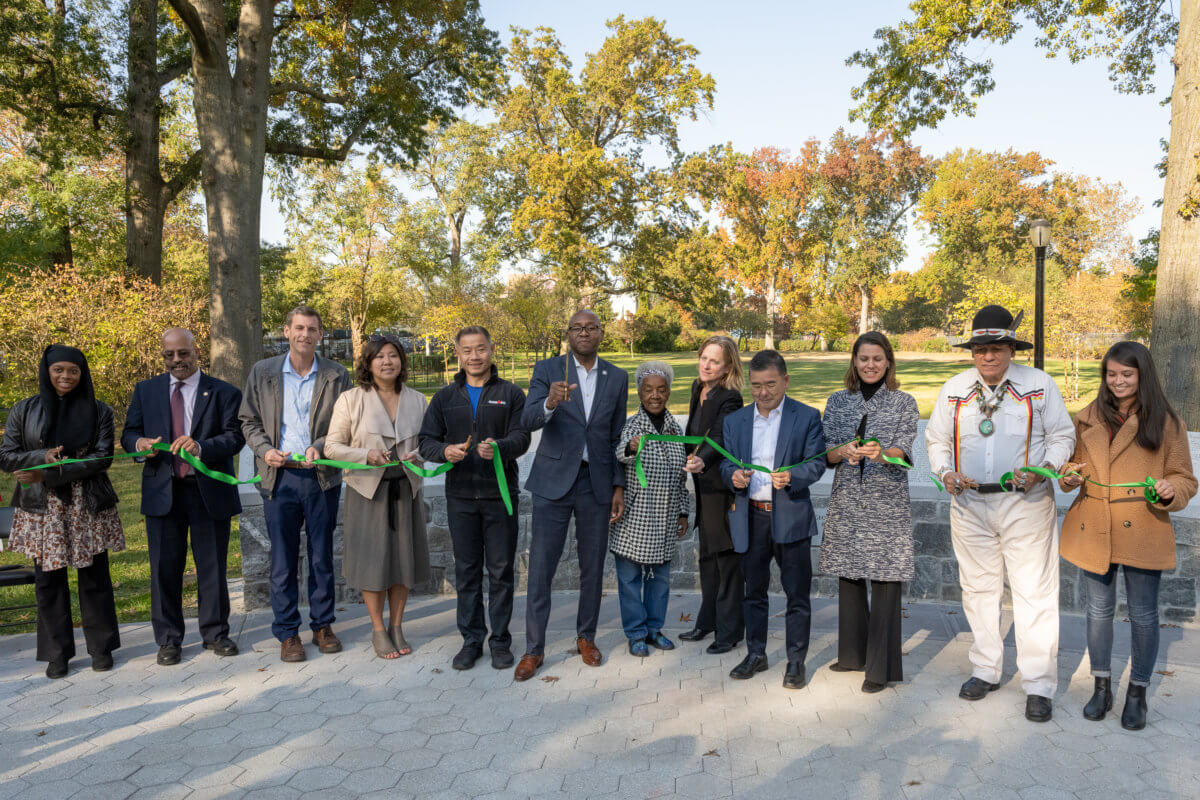
Assemblyman Edward Braunstein acknowledged the tireless work and dedication of Tshaka and the OTFBGC to make the memorial happen.
“I’ve watched for years the determination that took place to get this done, and our community is better off for it,” Braunstein said. “Not only do we finally have a proper place to recognize the sacred land behind us, but we also have an opportunity where our community can come and learn the history — the real, accurate history.”
Councilman Peter Koo reminded everyone to stay vigilant to ensure that future generations don’t forget about the burial ground. He also praised the tenacity of the burial ground advocates, saying they refused to “take no for an answer.”
“They fought tooth and nail to make sure this hollow ground was given the respect it deserves,” Koo said. “They made sure that the only acceptable answer was ‘yes.'”
Queens District Attorney Melinda Katz said the project was about correcting past mistakes.
“Today is about respecting those that are buried here,” said Katz, who helped fund the project during her tenure as Queens borough president.
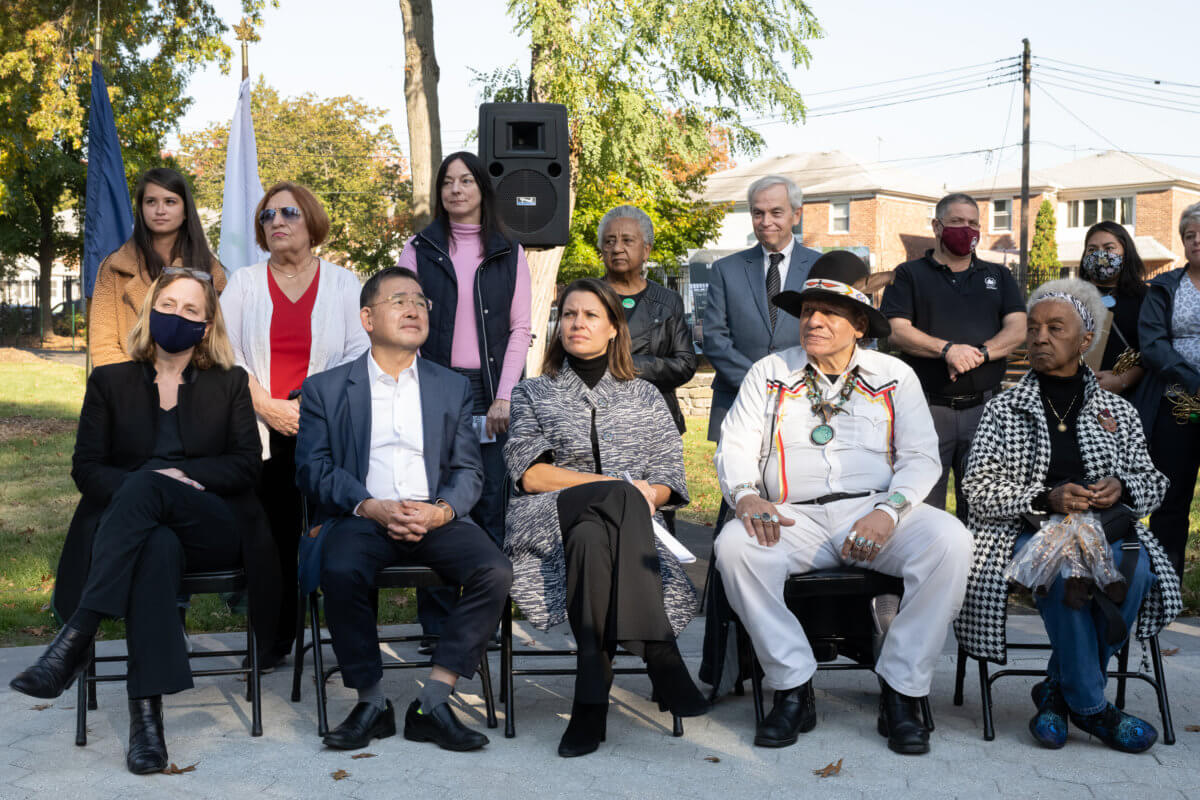
Robbie Garrison, the OTFBGC co-chair, thanked all conservancy members for their achievement and elected officials for their contributions in turning the memorial into reality.
Earlier, she shared with QNS that she was ecstatic, praising Katz for coming through for them.
“It has been a long, hard road to get to this,” Garrison said. “But we are here now, and we have to mention the money people. If it had not been for Melinda Katz bringing in Mayor de Blasio, we would not have arrived here today. And I have to be grateful to them because they came in with us, and they worked with Parks.”
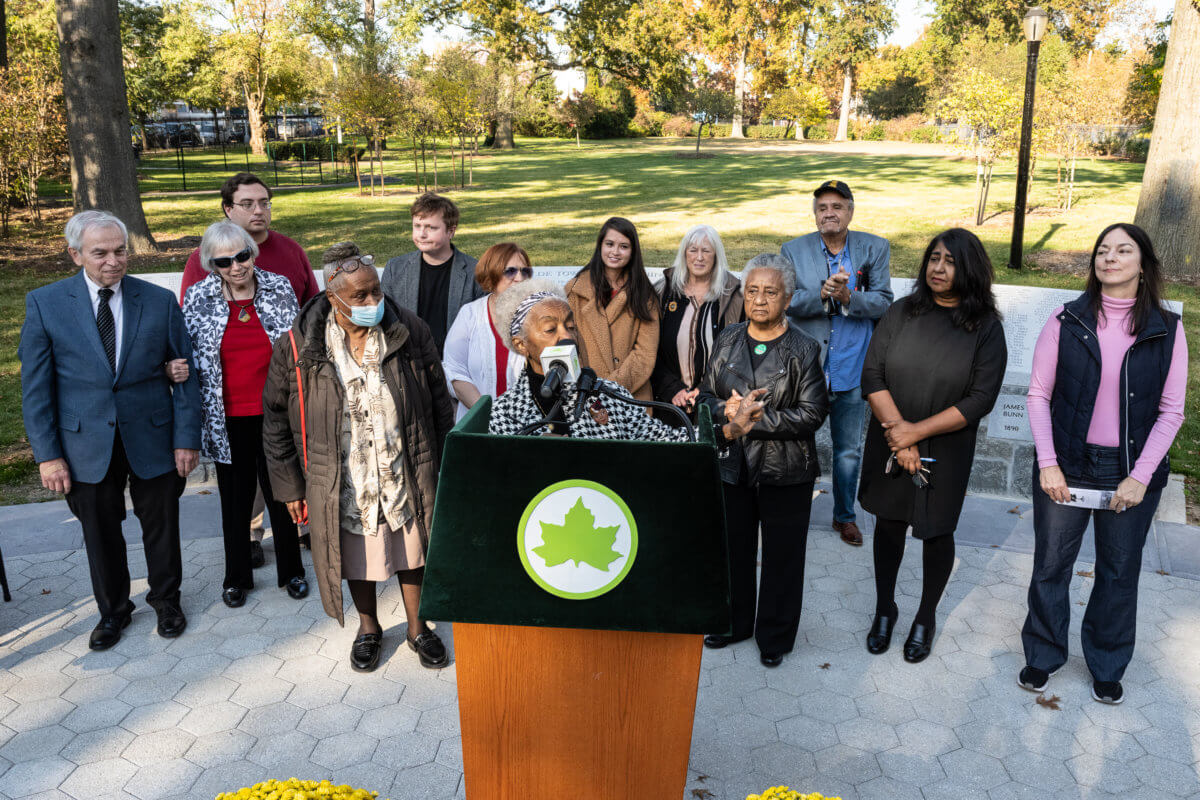
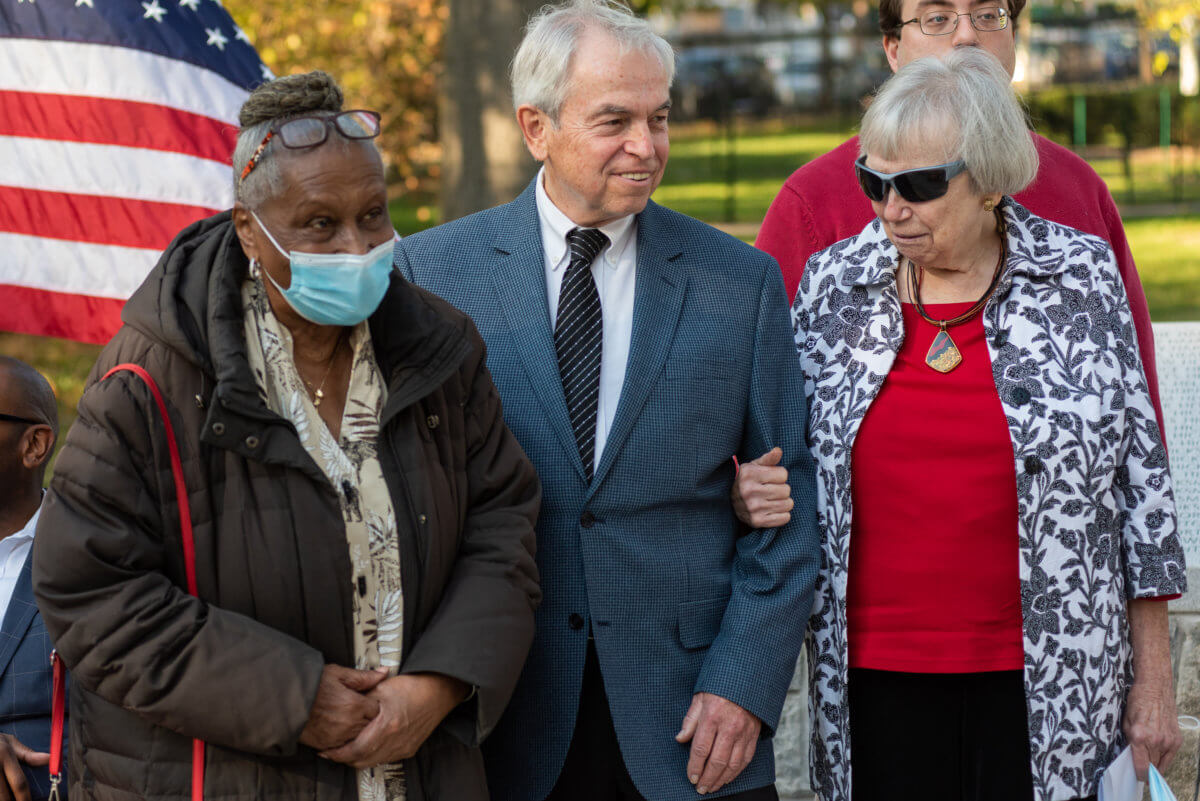
Conservancy member Beverly Riley called the name of Tshaka three times. Tshaka, whose health has been declining in recent years, couldn’t attend the ceremony.
“Your name will echo in the winds that blow over this sacred [place] forever,” Riley said of the 88-year-old activist. “A true warrior through it all. You never wavered. You stood tall. We say thank you.”
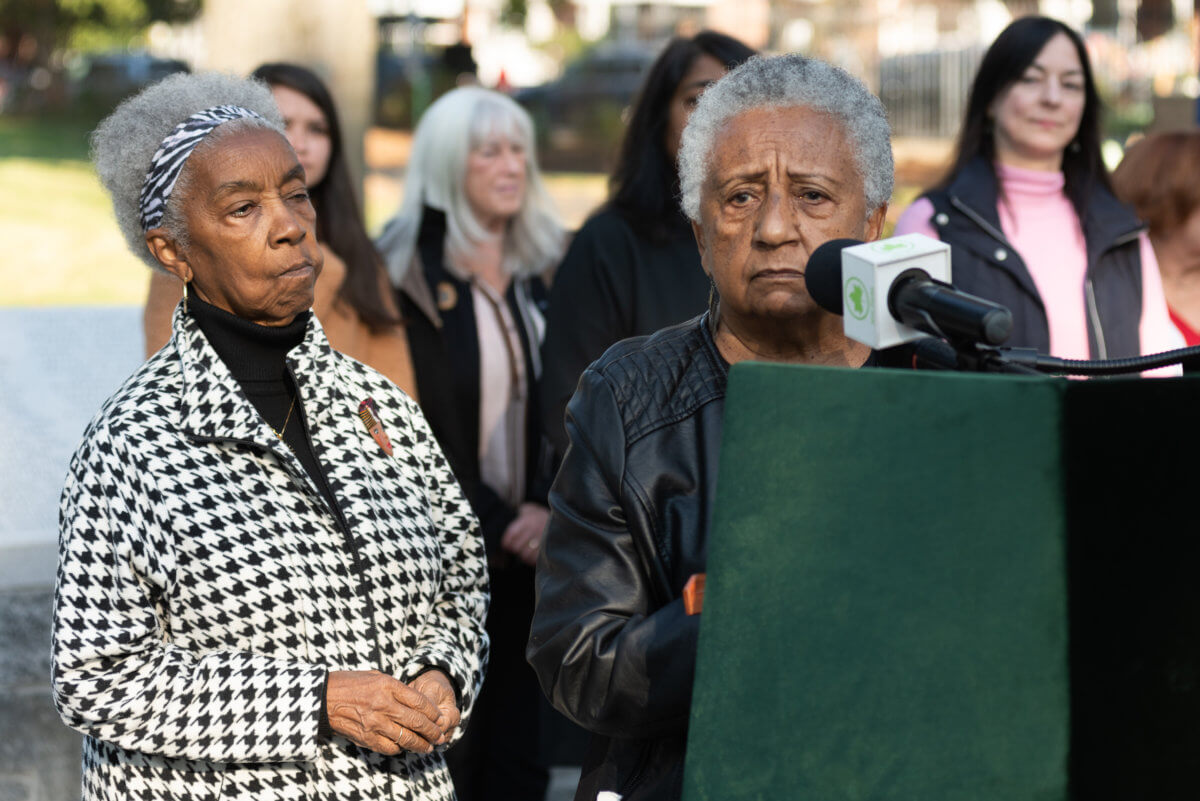
Riley recalled that a few years back, standing in the same spot, when she asked those gathered to close their eyes and open their hearts so they could feel the anguish and painful voices coming out from under their feet.
“If I asked you to do the same thing today, what you will feel in your heart are the rhythms of a jubilee that is taking place,” Riley said. “You will hear the jubilant voices singing and crying out in celebration for the justice that has come today, knowing that they can finally rest in peace.”

